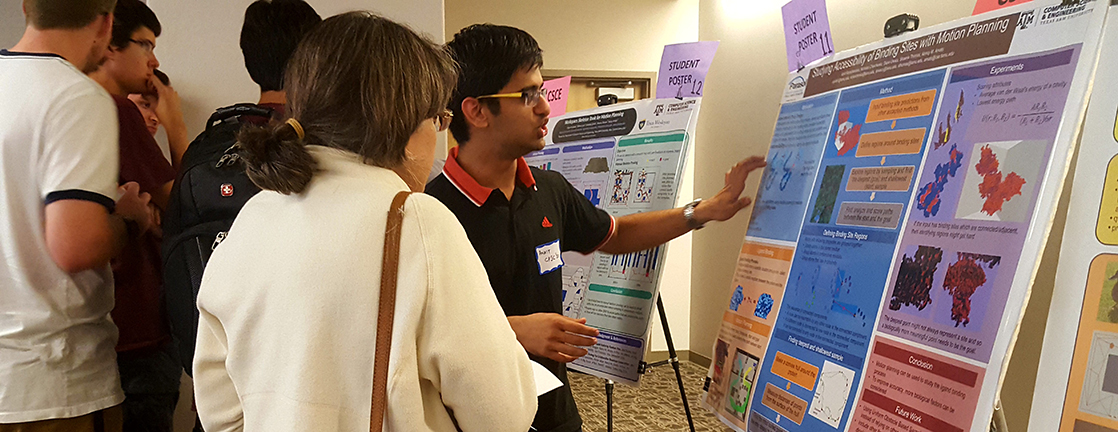
Texas A&M University’s Engineering Honors recently held it’s first Undergraduate Research Showcase & Opportunities Fair for all undergraduate members.
Students were encouraged to learn about the research of their fellow scholars and be inspired for their own research that is required for Engineering Honors students. Students were also able to learn about research opportunities that are available to all undergraduate students. Students from ten engineering departments presented their research to fair attendees.
Prizes were awarded best EH poster to the students who presented their research in the poster competition.
Select engineering faculty members judged the posters and ranked them based on specific criteria including novelty, utility, difficulty, and verbal and written presentation.
Ten departments represented were the following: aerospace engineering, biomedical engineering, chemical engineering, civil engineering, mechanical engineering, petroleum engineering, electrical engineering, nuclear engineering, engineering technology & industrial distribution, and computer science and engineering.
Student posters displayed research with topics such as motivating STEM participation through ‘making as a micro-manufacturing’ model, optimized solar harvesting system for residential applications using high frequency GaN devices and design of a self-contained SMA-based deployable space habitat.
Research opportunities through departments were vast, and included subjects such as groundwater sustainability--assessing conservation technologies and their impacts on ecosystems, building a more secure Google Chrome web browser and modeling and simulations of plasma dynamics of in-space propulsion devices.
The winners of the competition included three runners-up including interdisciplinary engineering student Luke Oaks for development of an essay for detecting an oral cancer biomarker using surface enhanced Raman spectroscopy, computer science engineering student Ankit Ramchandani with studying accessibility of ligand binding sites with motion planning and computer science and computer engineering student Diego Ruvalcaba with workplace skeleton tools for motion planning.
Antara Dattagupta from chemical engineering won the grand prize on her poster detailing her research in elucidating the mechanisms underlying Salmonella virulence
inhibition by micro biota metabolite Indole.
This event will be reoccurring. For information about future events like this, please visit Craig and Galen Brown Engineering Honors page.